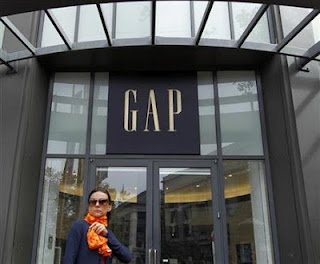
The Salem College Center for Women Writers announces the winners of their ninth annual International Literary Awards, chosen from over six hundred entries. The winner of each genre will receive $1,200. An honorarium of $150 will be awarded to the two honorable mentions of each genre.
Jennifer Christie of Corvallis, Oregon received the Reynolds Price Fiction Award for her short story “The Festival.” This contest was judged by Kate Bernheimer. Christie was named a Scholastic Art and Writing Awards Gold Key Recipient for Regions at Large in Manhattan in 2005. Currently, Christie is enrolled at Oregon State University where she is pursuing an MFA in Creative Writing. Jennifer Christie greatly admires Flannery O’Connor and says she “is thrilled” that some of the proceeds from this contest will go toward the long-awaited adoption of her future feline companion, Bartleby, the Pussycat.
An Honorable Mention for Fiction was awarded to Grazina Smith for her story “Auslander.” Smith, originally from Lithuania, now resides in Chicago, Illinois. Her work has appeared in several magazines including The Sun, Women’s World, and BAC Street Journal. Smith was also a finalist for the 2011 Salem College International Literary Awards.
Another Honorable Mention for Fiction was awarded to Karen Tucker of Asheville, NC, for her story “Long Before I Grew Used to Strange Men.” Tucker graduated from Warren Wilson College’s MFA Program and is the recipient of an Elizabeth George Foundation grant for Emerging Writers.
The Penelope Niven Creative Nonfiction Award, judged by Sigrid Nunez, was awarded to Jennifer Rose of Waltham, MA, for her essay “Buffalo (1971).” Rose has published two books of poetry, The Old Direction of Heaven (Truman State University Press) and Hometown for an Hour (Ohio University Press), the latter of which received the Hollis Summers Award. Her work has appeared in Poetry, The Nation, Ploughshares and elsewhere. She has received awards and fellowships from the National Endowment for the Arts, Massachusetts Cultural Council, Poetry Society of America and Astraea Foundation.
Daisy Hernandez’s essay “The Stories She Tells Us” was named an Honorable Mention in the Creative Nonfiction competition. Hernandez, who resides in Coral Gables, FL, in pursuit of her MFA from the University of Miami, is the co-editor of Colonize This! Young Women of Color on Today’s Feminism (Seal Press). Her essays have appeared in several anthologies including 50 Ways to Support Lesbian and Gay Equality and her commentaries have been featured on NPR, The Christian Science Monitor, The New York Times, and Ms. Magazine. Gabriel Houck of Lincoln, NE, also received a Creative Nonfiction Honorable Mention for his essay “A Hurricane on my Television.” Houck grew up in New Orleans and is now completing his Ph.D. at the University of Nebraska, Lincoln. Houck holds an MFA in writing from the California Institute of the Arts, and an MFA in nonfiction from the University of Iowa. His writing has appeared in Drunken Boat, Spectrum, and Flyaway. He lives happily with an ancient Keeshound named Logan.
“The Typists Play Monopoly” by Kathleen McClung of San Francisco, California, won the 2012 Rita Dove Poetry Award, judged by Aimee Nezhukumatathil. McClung teaches at Skyline College and the Writing Salon. She holds Masters degrees from Stanford University and California State University Fresno, where she studied with Alan Shapiro and Phillip Levine in the 1980s. Her poetry, memoir, and fiction have been featured in Poetry Northwest, Unsplendid, Bloodroot, Tule Review, Poetry Now, Spirituality & Health, Song of the San Joaquin, Poets 11, and A Bird Black as the Sun: California Poets on Crows and Ravens.
An Honorable Mention in Poetry was awarded to “Jellyfish Creed” by Celisa Steele, who published her first poetry chapbook How Language Is Lost in 2011. Steele’s poetry has also appeared in Tar River Poetry, Anglican Theological Review, and Wild Goose Poetry Review. Jessica Bane Robert also received Honorable Mention recognition for her poem
“And What of God?” Jessica currently teaches Writing and Literature courses at Clark University in Worcester, Massachusetts. Her poetry has appeared in Naugatuck River Review, The Ghazal Page, Outrider Press, and Cider Press Review.
Original source
here.


.png)























